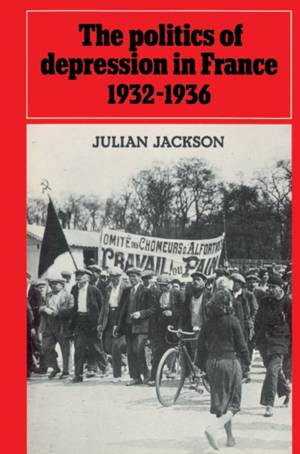
- Afhalen na 1 uur in een winkel met voorraad
- Gratis thuislevering in België vanaf € 30
- Ruim aanbod met 7 miljoen producten
- Afhalen na 1 uur in een winkel met voorraad
- Gratis thuislevering in België vanaf € 30
- Ruim aanbod met 7 miljoen producten
Zoeken
€ 60,95
+ 121 punten
Omschrijving
The poor performance of the French economy in the 1930s has long been recognised as a major contributory factor in the decline of the Third Republic, which collapsed after the defeat of 1940. Although France entered the Great Depression later than the rest of the world, French governments failed to learn from the experience of other countries in combating it. This book is the first full study of the formation of economic policy in these crucial years, and of the political debate to which it gave rise. It examines the origins of the notion of planning and the 'planomania', which gripped France in 1934; and it shows why this solution was ultimately rejected. It also analyses in detail the arguments of pro- and anti-devaluers. The conclusion suggests that stagnation was to some extent chosen as a conscious policy, since at least until 1936 the Depression never seemed severe enough to threaten the social order.
Specificaties
Betrokkenen
- Auteur(s):
- Uitgeverij:
Inhoud
- Aantal bladzijden:
- 316
- Taal:
- Engels
Eigenschappen
- Productcode (EAN):
- 9780521522670
- Verschijningsdatum:
- 22/08/2002
- Uitvoering:
- Paperback
- Formaat:
- Trade paperback (VS)
- Afmetingen:
- 163 mm x 240 mm
- Gewicht:
- 485 g

Alleen bij Standaard Boekhandel
+ 121 punten op je klantenkaart van Standaard Boekhandel
Beoordelingen
We publiceren alleen reviews die voldoen aan de voorwaarden voor reviews. Bekijk onze voorwaarden voor reviews.











